The Significance of a Well-Designed Kitchen
A well-designed kitchen goes beyond mere aesthetics, and it significantly impacts your home's functionality and efficiency.
With a tailored kitchen design, every corner of your kitchen can be utilised, and cooking can become a more enjoyable experience. Not to mention, a well-designed kitchen can substantially improve the value of your home.
In terms of functionality, a kitchen design that's been meticulously planned caters to your specific needs. The layout, storage options, and workflow are skilfully integrated into the design to make day-to-day kitchen activities more smooth and efficient.
Paying attention to how the kitchen 'works' can result in a space that looks good and makes meal preparation, eating, and cleaning up a pleasure rather than a chore.
From an aesthetic perspective, the kitchen is often referred to as the heart of the home, and a space where people inevitably gather.
With the influence of design programmes and social media, many homeowners now see the kitchen as a statement or centrepiece of their home.
In this context, the aesthetic appeal of a well-designed kitchen can echo your individual style and complement the architecture of your home.
Lastly, when it comes to increasing the value of your home, a well-designed kitchen can make a substantial difference. Potential buyers are often willing to pay more for a home with a well-laid out, modern kitchen that save space and time.
Also, if selling isn't on your radar, remember that a good kitchen design ensures you enjoy your kitchen for years to come and can be a worthwhile investment for improving your overall quality of life.
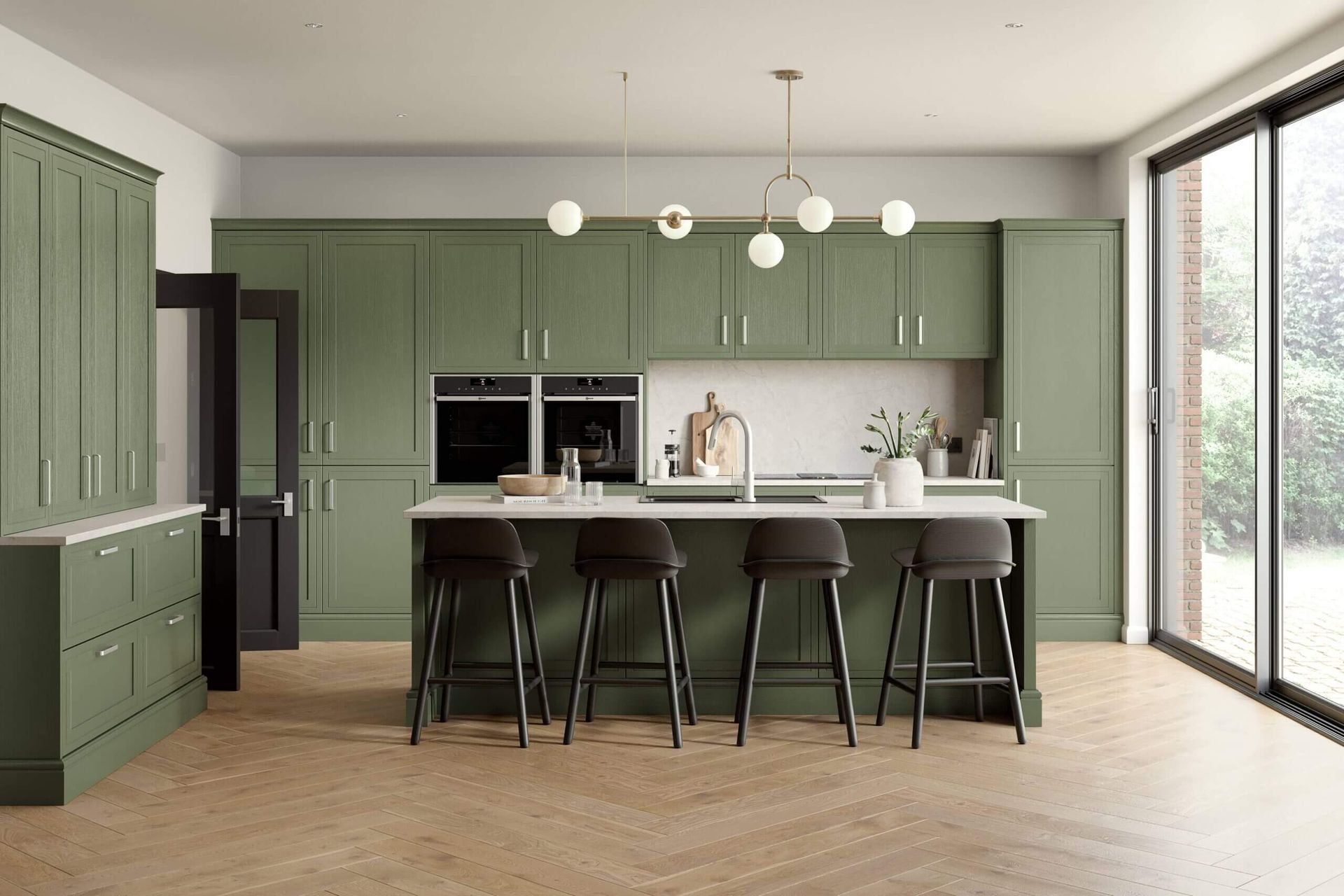
Understanding the Role of a Kitchen Designer
A kitchen designer plays a pivotal role in transforming your dream kitchen into a tangible reality. They integrate creativity, practicality, and industry knowledge to draft detailed plans and specifications, optimising the space's functionality and aesthetic appeal.
Responsibilities of a Kitchen Designer
- Design Proposal: A kitchen designer creates a design proposal based on your requirements, preferences, and budget. They pay careful attention to your lifestyle, culinary habits, and specific needs to make sure the layout, storage solutions, and appliances meet your expectations.
- Product Selection: Leveraging their industry knowledge, a kitchen designer guides you through the myriad of choices in materials, finishes, and kitchen appliances. They provide invaluable resources to ensure you make informed decisions that align with your style and budget.
- Technical Drawings: Kitchen designers develop detailed technical drawings and 3D renderings. These designs provide precise measurements, placement of kitchen features, and visual representation of your final kitchen, preventing costly mistakes during construction.
- Project Management: A kitchen designer often manages the project, coordinating with suppliers, contractors, and tradespeople. Their role can include overseeing timelines, resolving issues, and ensuring the renovation adheres to the proposed design and budget.
These responsibilities underscore the multifaceted value a kitchen designer adds to your renovation project.
It's not just about creating an attractive kitchen; it's about conceiving a design that marries function and style, making your kitchen an enjoyable and productive space for years to come.
The Value a Kitchen Designer Brings to a Renovation Project
A kitchen designer brings a wealth of expertise and knowledge to a renovation project, providing essential value that is often overlooked. The designer's role extends well beyond producing a set of drawings or concepts. They can add significant value to your project in many ways:
- Expert guidance: Kitchen designers have a thorough understanding of the complexities of kitchen redesign. They provide expert guidance at every stage of the project, from planning and design to product selection and installation.
- Efficient space utilisation: Given their extensive experience, kitchen designers are adept in maximising the use of space. Whether you have a compact or sprawling kitchen, a designer can work on efficiently utilising the space to meet your needs, while maintaining an appealing aesthetic.
- Material and product selection: Selecting the right materials and products can often be overwhelming. With access to the latest materials, technology and design trends, kitchen designers can offer functional and aesthetic recommendations specific to your style and needs.
- Cost-saving advice: A skilled kitchen designer can save you money in the long run. They can offer tips on where to spend and where to save, help prevent costly mistakes, and can often access trade discounts on materials and appliances.
When you hire a kitchen designer, you are not just paying for a design. You are investing in their experience, resources, and industry relationships which can considerably enhance the success and functionality of your kitchen renovation.
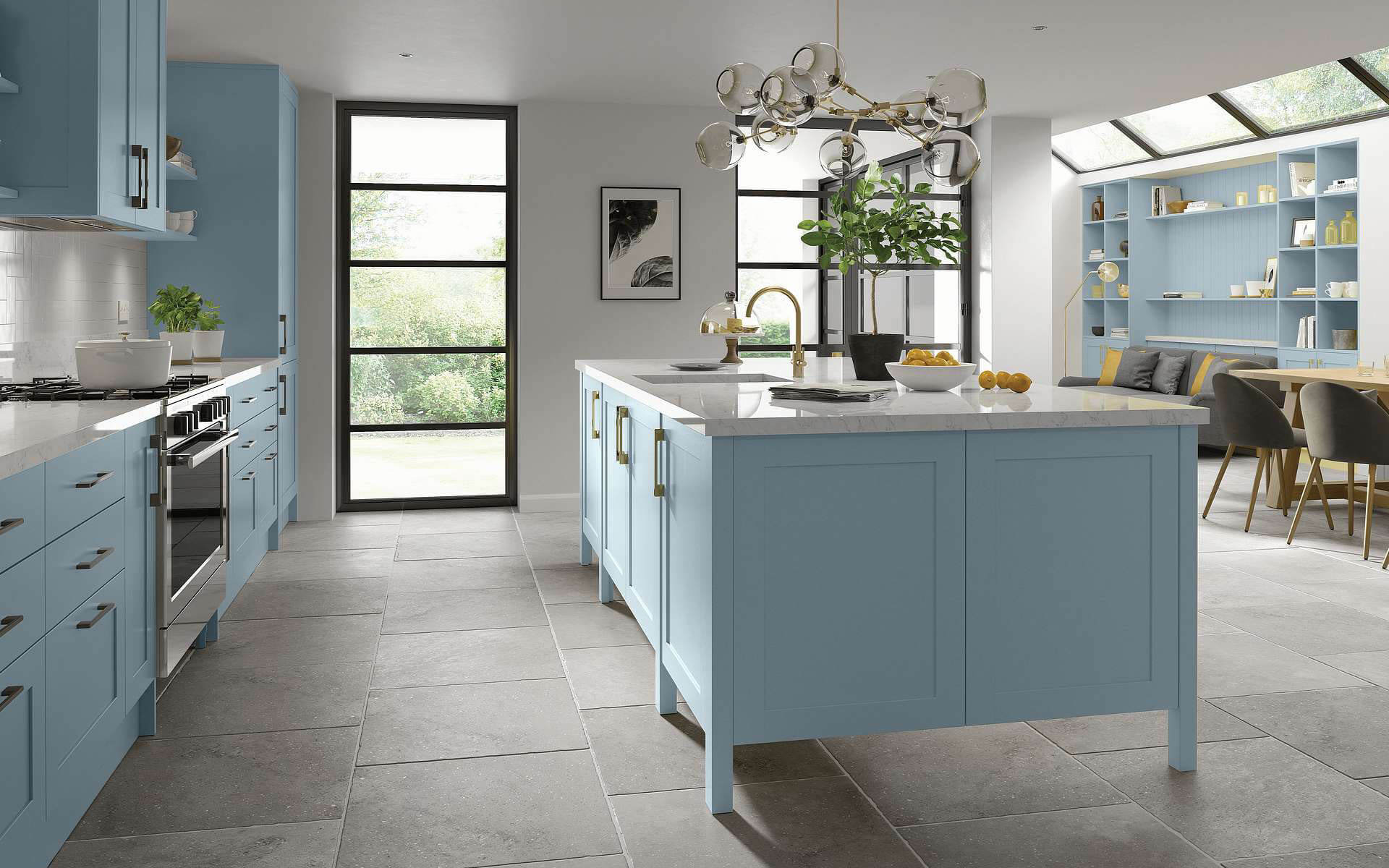
Preparing for Your Kitchen Design Project
Renovating a kitchen is no small task. Prior to kicking off your project, it's vital to understand the scope of the work involved, your style preferences, and the realistic allocation of your budget.
By doing so, you put yourself in the best position to achieve a kitchen that’s an accurate reflection of your taste while also being functional and efficient.
Identify Your Needs and Style Preferences
Begin with identifying your specific needs. Consider factors such as how you intend to use the kitchen, the size of your family, and your cooking habits.
All these elements play a crucial role in influencing the design of your kitchen. For example, if you love entertaining, you might prefer an open layout with a large island that can also serve as a dining area.
Similarly, avid cooks might require more countertop space or even professional-grade appliances.
Then, try to define your style preferences for your kitchen. Are you drawn to the timeless elegance of a classic kitchen, or do you prefer a more modern, minimalist design?
Do you fancy vibrant colours or a softer colour palette? Sketching your vision can help you effectively communicate your taste to your chosen kitchen designer and aid them in creating a design that truly resonates with you.
Determining Your Budget
While planning your project, setting a feasible budget is crucial. Strongly consider how much you can afford to spend on your renovation. It's also vital to consider how much of your budget should be allocated to design services.
Remember, a good kitchen designer can often save you money in the long run by recommending cost-effective solutions and avoiding costly mistakes.
Therefore, their fees should be factored into your budget from the outset.
- Labour costs: This includes fees for plumbers, electricians, carpenters, and kitchen designers.
- Material costs: This includes costs for worktops, cabinets, flooring, and paint.
- Appliance costs: This would vary depending on the quality of the appliances you choose. High-end brands demand a higher price tag.
Always keep in mind that unforeseen expenses might arise during the renovation. It’s a common practice to set aside an additional 10-20% of your budget for such contingencies.
Now, with a good grasp of your needs, style preferences, and budget, you're well-prepared to start seeking a kitchen designer whose skills, experience, and aesthetic align with yours.
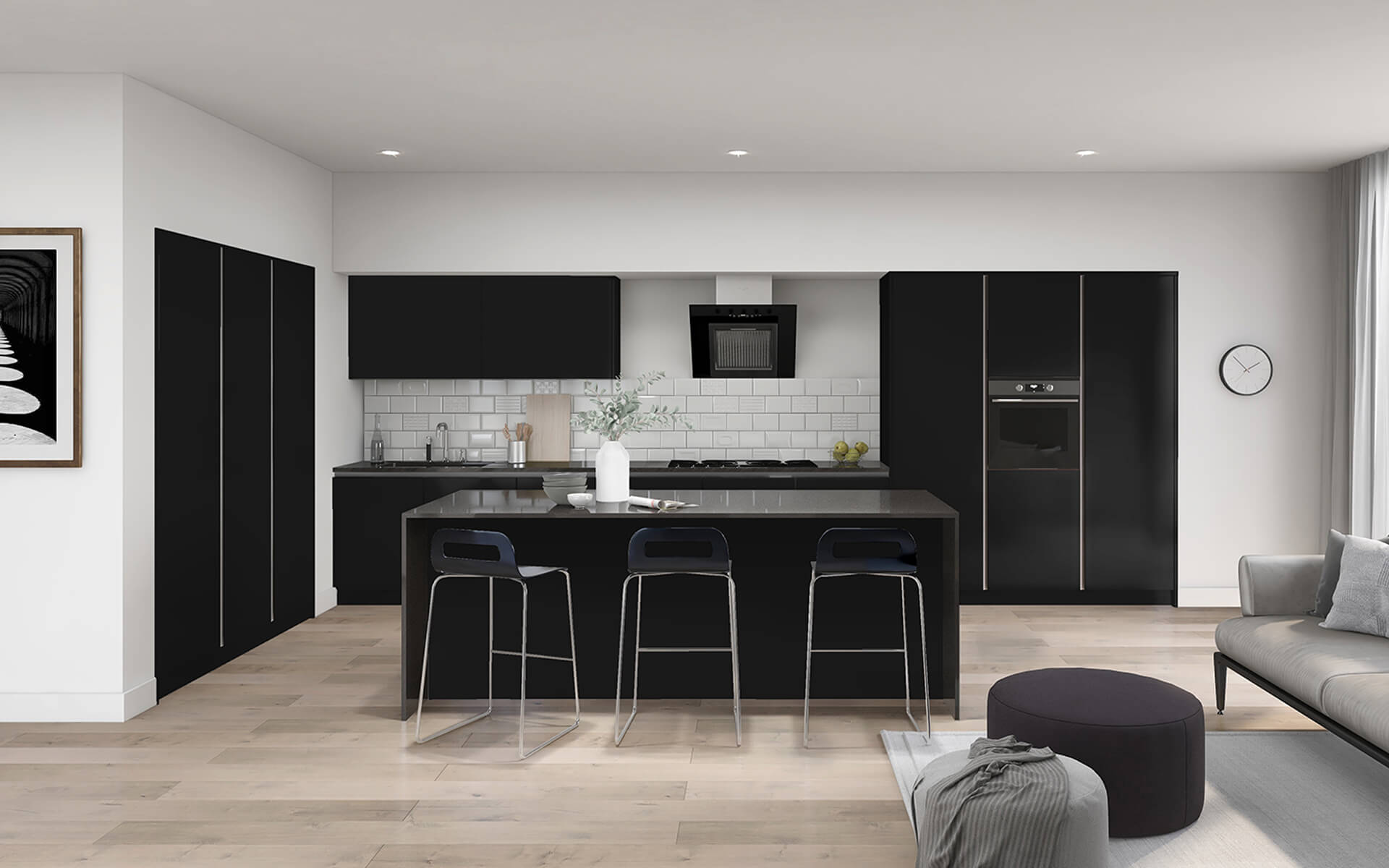
Determining Your Needs and Style Preferences
Initiating your kitchen design project is a significant step. To ensure a rewarding outcome, it's crucial to make a thorough assessment of your needs and style preferences.
Without a firm grasp of these, any renovation effort may fall short of meeting your expectations, in both practical and aesthetic terms.
First and foremost, look at your current kitchen setup. What's working for you and what isn't? Start by making a list:
- What you like: If you love your appliance garage or pantry, make a note of this to include in your new design.
- What you dislike: If lack of storage or countertop space frustrates you, ensure this gets addressed in your new plan.
Having identified your needs, you can shift your attention to style preferences. Ask yourself, "What look and feel do I want to achieve in my kitchen?" You can find inspiration in various sources such as magazines, Pinterest, or even in the homes of family and friends.
Don't limit yourself to the current style of your kitchen. A renovation is your opportunity to transform it to mirror your personality and lifestyle. Some popular styles include:
- Modern: Characterised by clean geometric shapes, minimal clutter and innovative appliances.
- Traditional: Typically featuring antique-style furniture, ornate mouldings, and rich wood cabinets.
- Contemporary: Balances the clean lines of a modern design with the warmth of a traditional kitchen.
- Industrial: Inspired by old factories and industrial spaces, it features exposed brick or stone walls, and stainless steel appliances.
When gathering ideas, consider compiling a mood board to visualise your preferred colours, textures, and materials. This will form a useful reference point, helping you to maintain coherence as your design progresses.
Beginning your kitchen renovation with a clear understanding of your needs and style preferences can genuinely make a significant difference.
It sets a promising course for your project, as well as being an empowering step that provides tangible shape to your renovation aspirations.
Setting a Realistic Budget for Your Kitchen Renovation
The budget is the foundation of any home renovation project, including kitchen design; therefore, setting a realistic budget for your kitchen renovation is a critical first step.
Your budget will need to account not only for aesthetic considerations but also practical elements such as plumbing and electrical works. Here's how you can create a balanced budget for your kitchen design project.
Understanding the Proportion of Budget Allocation for Design Services
It's essential to grasp the proportion of your budget that'll be consumed by design services.
Design fees can vary significantly, depending primarily on the complexity of the project and the experience level of the designer.
Typically, this could range anywhere between 10% and 25% of your total budget.
Managing Construction and Material Costs
Large parts of your budget will be directed towards the costs of raw materials and construction. Remember, everything from countertops, cabinets, flooring, and appliances will amount to a substantial part of your budget.
While it's tempting to opt for high-end finishes, always have a clear understanding of the costs involved and how they measure against your budget.
Additional Costs
When planning your budget, don't forget the hidden costs that can arise throughout a kitchen renovation.
These might include costs for installing new plumbing or electrical systems, or unexpected works needed after removing old cabinets or flooring. It's wise to leave about 10%-20% of your budget for unexpected costs.
Considering Future Savings
While setting your budget, be mindful of the potential for future savings. Energy-efficient appliances or high-quality, durable materials may be more expensive initially, but can save you money in the long term.
Having a well-delineated budget not only helps you stay within your means but also aids you in making educated decisions about the design and execution of your kitchen renovation.
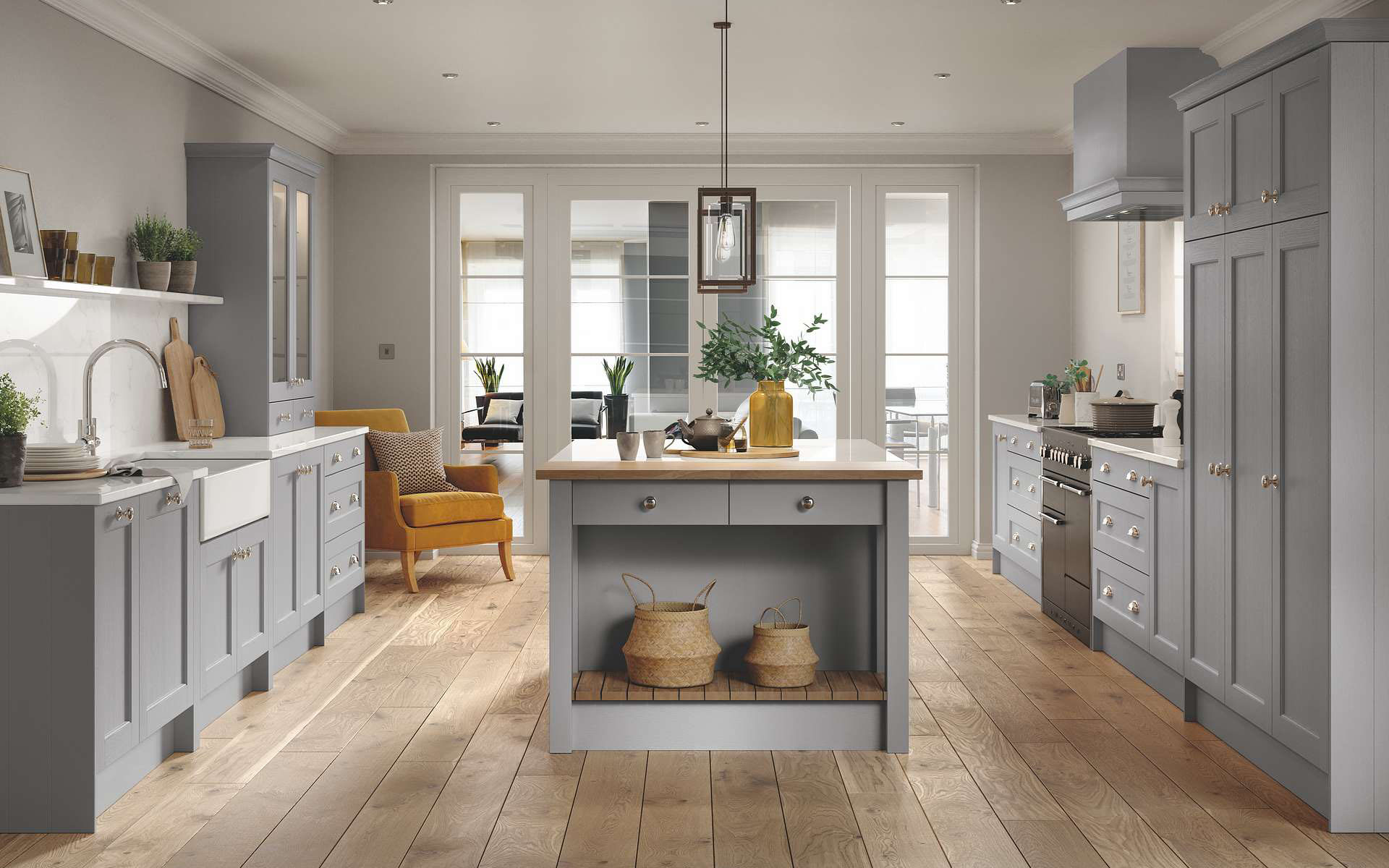
Finding the Right Kitchen Designer
Finding the right professional to design your kitchen is an essential step in the renovation process. Whilst you want someone with expertise and an in-depth understanding of kitchen design, compatibility with your style and seamless communication are also vital.
If you're looking to save costs, try the DIY Kitchen Design approach utilising an online kitchen designer, like the Better Kitchens 3D Planner, can be a cost-effective solution.
Online tools like this let you take the reins, giving you a detailed glimpse of your redesigned kitchen before any real work is done.
It aids in material selection, positioning of appliances, and testing different styles and colours, thus providing an interactive medium where you can realise your ideas in a virtual environment.
This self-guided approach, merged with consultation from an expert at opportune moments, can prove to be a rewarding blend of professional guidance and personal creativity, whilst also being kinder on your budget.
Remember, even as you take advantage of online design tools, your hired kitchen designer's expertise remains an invaluable resource, they can provide targeted feedback, mitigate prospective issues, and suggest improvements to your created designs.
Thus, the blend of do-it-yourself online design planning and professional advice offers both personalised design and cost-effective solutions for your kitchen renovation.
The Design Process: What to Expect
Once you've secured a kitchen designer that fits your needs, the design process officially kicks off. This collaborative journey will involve several meetings, correspondence, research, selection and decision-making, which will eventually shape and define your dream kitchen.
Initial Consultations and What They Entail
The grounding point of any kitchen design process is the initial consultation. This is where the designer will get to understand you – your lifestyle, your needs, your taste, and your vision for the kitchen.
It’s exceptionally important that you communicate all your preferences, desires, and concerns during this phase. Most designers will encourage a two-way dialogue and may even visit your home to get a feel of the space and its potential.
The Collaboration Between Homeowner and Designer
The kitchen design process is predominantly a collaborative effort. The designer brings expertise to the table, introducing innovative ideas, suggesting divergent designs and manoeuvring through technical compliances.
On the other hand, as the homeowner, you bring personal preferences and practical considerations to align with your lifestyle and needs.
The collaboration of both these perspectives is fundamental to compose the perfect kitchen design.
Understanding Design Proposals and Revisions
Design proposals are an amalgamation of the designer's ideas and your requirements. They are usually presented as sketches or digital representations, allowing you to visualise what the final space will look like.
It’s necessary to take your time to understand these proposals and provide your feedback. It is typical for designs to undergo several revisions until all your needs are meet and the design resonates with your vision.
Remember that entrusting the services of a professional kitchen designer is an opportunity to transform your kitchen into a practical and aesthetically pleasing space that you will love to use every day.
By understanding the design process, you're equipping yourself to make the best decisions for this key area of your home.
Key Considerations in Kitchen Design
Kitchen design is not just about aesthetics. It speaks volumes about the functionality, efficiency, and overall harmony in your home. Here's what you should pay attention to:
Layout and Functionality
Your kitchen layout should champion functionality. It’s not only about the placement of appliances but also factors like cupboard reach, cooking convenience, and traffic flow.
- Maximising space: Your designer should adeptly utilise even the smallest spaces to ensure your kitchen doesn’t feel cramped or cluttered.
- Efficiency: From quick and easy access to kitchen tools for a chef to creating a space where family gathers, efficiency is key. A well-thought-out layout can prevent unnecessary movement and save time.
Aesthetics
While the look of your kitchen may boil down to personal preference, it should also be in harmony with the rest of your home. Your kitchen designer has the capacity to ensure that balance.
- Design Preference: You may favour a sleek, minimalist kitchen or a cosy, country-style one. Convey this to your designer, enabling them to reflect your personality and style in the design.
- Architectural Consistency: The kitchen design should look like it belongs, complementing rather than conflicting with the architectural style of your home.
Material and Product Selection
Choosing quality materials and products doesn't necessarily mean the most expensive. Your designer can help you make intelligent selections that balance quality and budget.
- Material Durability: Opt for materials that can withstand regular use and offer long-term durability, be it for countertops, cabinets, or flooring.
- Budget-Friendly Choices: There are quality items at every price point. Your designer can assist you in sourcing products that offer the best value for your budget.
Remember, while aesthetics, layout, and materials are essential considerations, the real test of a good kitchen design is how well it suits your lifestyle and needs. Keep these pointers in mind as you collaborate with your kitchen designer for your dream cooking space.
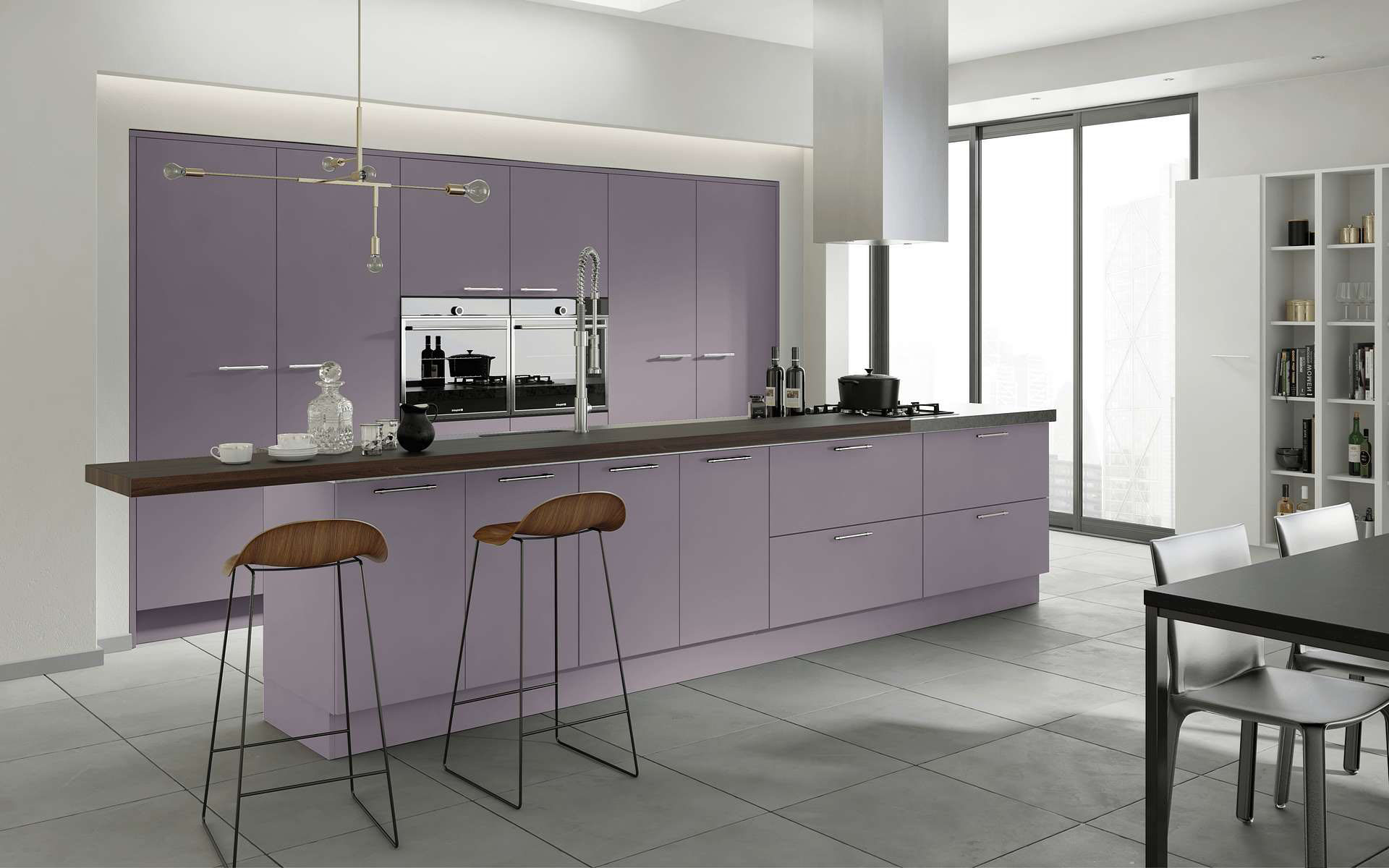
Next Steps
Ready to transform your kitchen into a space that is as functional as it is beautiful? Start your kitchen design journey with a designer who can bring your unique vision to life.
Whether you have clear ideas about what you want or need professional advice to form a plan, a right kitchen designer can be the game-changer.
Taking the first step can be the hardest part of any project. Get started now and contact us to find a kitchen designer who will work with you to create the perfect kitchen.
Our experts are ready to guide you through every step of the process, helping you make informed decisions that will fit your style, needs, and budget.
Start the journey towards your dream kitchen today! Remember, the best kitchens aren't just about aesthetics - they're about functionality, durability, and creating a space that works for you.
So don't wait. Your perfect kitchen is just one decision away. Contact us now to start your kitchen makeover!
